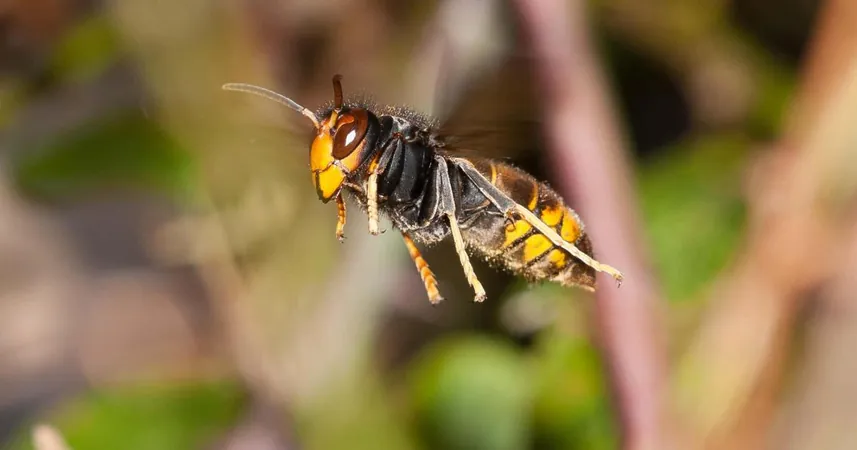
Scientists Develop Groundbreaking Technology to Protect Honeybees from Invasive Hornets!
2025-04-06
Author: Arjun
Introduction
In a profound move to safeguard our vital honeybee populations, researchers from Nottingham Trent University have made a startling breakthrough in identifying the distinctive sounds of hovering Asian hornets.
Background
These invasive insects are notorious for their lethal impact on honeybee colonies, capable of killing up to 50 bees daily. The pressure placed on these bees not only threatens their lives but also causes them to forage less, ultimately jeopardizing the survival of entire hives, especially as winter approaches.
Technological Breakthrough
Utilizing economical microphones and a sophisticated algorithm, the scientists have successfully differentiated between the flight sounds of Asian hornets, honeybees, and general background noise. Unlike the short bursts of sound produced by honeybees as they dash in and out of hives, Asian hornets produce a unique, continuous hovering sound.
Implications for Beekeepers
Imagine the peace of mind for beekeepers who could receive instant notifications on their smartphones the moment a hornet is detected! This swift response would enable them to take immediate action to mitigate the threat, hopefully before any significant stress is inflicted on their bees.
Collaboration and Accuracy
The research team collaborated with experts from the University of Coimbra in Portugal and Ghent University in Belgium, achieving almost perfect accuracy in detecting Asian hornets over three seasons at an apiary in Portugal.
The Threat of Asian Hornets
Originating from Southeast Asia, the Asian hornet made its European debut around 20 years ago, hitching a ride to France in a shipment of pottery from China. Its rapid colonization of Europe has already led to devastating consequences for honeybee colonies in countries like France and Italy.
Current Situation in the UK
In the UK, first sightings were confirmed in 2016, with 44 occurrences documented in 2024, primarily in Kent and East Sussex. However, effective rapid response strategies have curbed its spread across Britain, but vigilance remains crucial.
Expert Insights
Dr. Harriet Hall, the lead researcher, emphasized the urgency of addressing the invasive species issue. "Invasive species like the Asian hornet pose a serious threat to biodiversity, particularly for our native honeybee populations that have not evolved defenses against these predators," she stated.
Conclusion
With this innovative technology promising a safer environment for our beloved honeybees, the implications for agriculture and biodiversity are enormous. Stay tuned as this research continues to develop, potentially transforming how we protect honeybees from invasive threats in the future!



 Brasil (PT)
Brasil (PT)
 Canada (EN)
Canada (EN)
 Chile (ES)
Chile (ES)
 Česko (CS)
Česko (CS)
 대한민국 (KO)
대한민국 (KO)
 España (ES)
España (ES)
 France (FR)
France (FR)
 Hong Kong (EN)
Hong Kong (EN)
 Italia (IT)
Italia (IT)
 日本 (JA)
日本 (JA)
 Magyarország (HU)
Magyarország (HU)
 Norge (NO)
Norge (NO)
 Polska (PL)
Polska (PL)
 Schweiz (DE)
Schweiz (DE)
 Singapore (EN)
Singapore (EN)
 Sverige (SV)
Sverige (SV)
 Suomi (FI)
Suomi (FI)
 Türkiye (TR)
Türkiye (TR)
 الإمارات العربية المتحدة (AR)
الإمارات العربية المتحدة (AR)